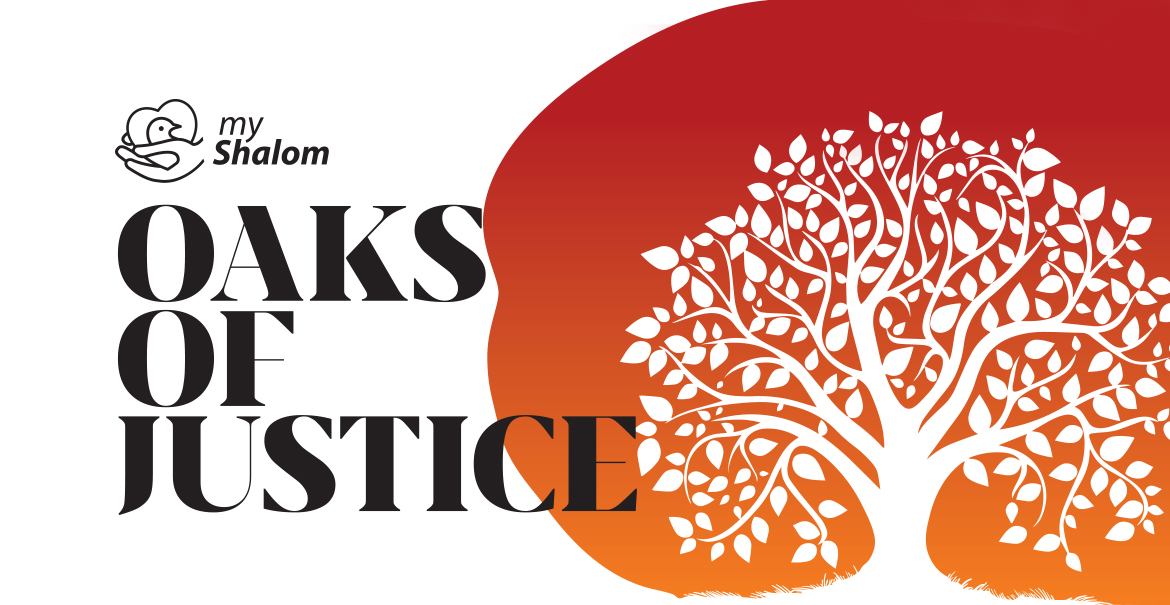
I have never had a problem asking God for anything. While my religious education teachers were encouraging my shyer classmates to share even the smallest desire to their Creator, I was shameless. He was a person who could never reject my requests, even as they changed from pretty dolls and passed auditions to heartfelt conversions and lasting healings. Yet, when I asked for the souls of my friends, I didn’t receive the usual ease and comfort I expected. Instead I got the sense that my response came in two parts: “Yes, but you must work for them.”
The first time, it was easy to brush off - my parents brought me to church programs and I was well aware of the good in missionary work; it just seemed far off in the future. But, when I asked again and again, I always received the same feeling: “You must work.”
This became more troubling as the years passed by. The worries I brought were no longer cheating on tests and arguing on playgrounds, they were empty medicine bottles and cuts on wrists. I started to know more people my age who’d been touched by mental illness, depression, and anxiety than those who hadn’t been.
Ensnared by the World
The people I knew didn’t wind up trapped in those habits and mentalities because they wanted them. Most I knew never intended to arrive at those situations in the first place. However, the pain they held inside, and the actions they took to numb that pain, led them to believe that they had no choice.
Deep inside each person is the intense desire for connection. We want to be accepted, if only by ourselves. The society we know builds ideas of how we can satisfy this craving, through finding a passion, best friend, or romantic partner. All those things are quite difficult, so most people try other ways to be happy, through money, experiences and the like. Yet, we can’t help but be hurt when we feel our lack of connection, when we hear about activities we weren’t invited to, when no one notices our silence behind the “I’m fine.”
Paired with ever increasing expectations at home, school, and work, individuals are told that they must mature as soon as possible to achieve success and happiness. However, they are confronted with society’s idolized versions of freedom and individuality. If only they are free to do as they please, then they’ll be happy. What happens when they make those choices, and they aren’t?
Like all mortal things, this wild freedom, really a sort of chaining to one’s’ own emotions, fails to satisfy. We are thinking - not only feeling - beings, and are intrinsically dissatisfied with being directionless, leaping from one experience to another with no higher purpose. However, thinking about our flawed selves, our tiny place in a humongous world, and the hurt that we’ve been handed through decision or circumstance is hard. Life is hard. So we surround ourselves with increasingly toxic distractions to block it out.
Sinking in Deep Mire
As the initial novelty eventually wears off, we plunge ourselves deeper, chasing the need to feel an emotional response, something other than the bored anguish we ourselves can barely communicate. So unwittingly self-focused, we can’t help but retreat into our own minds, becoming disgusted at what lies there - insecurity, loneliness, and emptiness. We can’t help but wonder, of all the things we’ve seen, of all the hopes we’ve had, is this all we amount to?. Of course, the answer is no. The truth is that we are all much more that this temporal world can ever satisfy. But, most people are too cynical, too hurt to accept that truth, to accept Him. Because really, the truth is only brought to life in the knowledge of Christ Jesus. The trouble is that most feel that they already know Him, when they only possess a misconception of God. We’ve gotten to the point where the world considers it more enlightened to overlook the evidence of miracles and martyrs than to genuinely consider them active in one’s own life. Our society has turned the all-powerful, all-encompassing God into a notion of a decoration that only suits a certain kind of person. When my peers are shocked at a friend’s behavior, I’ve commonly heard them tell each other, laughing, “You need Jesus.” Going to the Lord is played as a joke, as an extreme option to choose, yet it is still acknowledged as a source - if outdated - of good. The tricky part is showing individuals that this good is true, real, and accessible to them.
The Shining Light of Shalom
It is at this crossroads, between the disarray of the mind and the cravings of the heart, that Shalom Ministries has been endowed with the grace to work. By becoming embedded in a regular part of the world, media, this ministry becomes an avenue for God to work in homes, public spaces, and on the great expanse of the internet. When people search for more on their phones and in their communities, Shalom delivers content that answers questions, soothes isolation, and lights the way to a better way of living. It leads people to Christ. Shalom Ministries promotes and distributes entertainment and messages that don’t numb the mind, but instead guide it to heal authentically. Every program and script is based in the truth of Christ, and always ties back to the church on earth. In this Shalom is unique, combining an intangible presence in video and film with a tangible reality through magazines like Shalom Tidings and in-person programs like Jesus Heals. There are countless avenues that persons can explore if they need to know where to turn, whether it be through emails, calls, or face-to-face. Through this ministry, God is bringing together life-changing opportunities that soothe the secret, aching hurts of souls in the modern era.
Discovering our Talents
It is a global perspective that the ministry holds, not one based on a particular country or culture. I was blessed to see these international efforts at the Shalom Media Summit, a conference that changed how I thought about mission service. I was excited to see so many youth interested in taking on the challenge of media, and encouraged by the reminder that desire, not education, is what empowers people to spread the gospel at any age. During one activity, each participant was sorted into their own area; concept development, technical, film, scripting etc., and saw how their skillset could further the mission. We got a chance to discuss our ideas and gain confidence in our ability to contribute, which carried over when we returned to our home countries and regions. A few words from a speaker have not left my mind. On the first day of the conference, a priest discussed how a person could find their place in ministry work and vocations. He insisted, “It’s not about you! It’s not about what you feel, it’s not about what you think! You need to be convinced that there is a person, right now, desperately in love with you. Jesus is madly in love with you. He craves for you. When you realize that, all other things will fall into place.”
Sharing His Love
Love is the message we aim to share, the conviction that an individual is loved, in the here and now, not only for who they ought to be, but for who they are. It’s a shield of acceptance that protects them from the harshness of their environment and the even harsher criticism in their own mind. It’s a belief that inspires them to brave actions contrary to the other messages they may hear. It’s a hope that gives them the strength to move forward. For those of us who have tasted this love, we have been given a call to share it with those who have not yet glimpsed it. I volunteer as a writer and ambassador for Shalom. I’ve written script for animations and short videos, edited text for social media and websites, and created concepts for media work around themes like Christmas, Easter, and World Youth Day. In areas such as program naming or date selection, I’m able to offer my input, not based on any sort of professional training, but instead from the perspective of what I’ve learned through school, clubs, and community work. I’ve been able to assist in coordinating Jesus Heals programs, accompanying my mother in reaching out to potential parish partners, refining and presenting event announcements at surrounding churches, and directing volunteers and attendees by acting as an emcee or answering questions. Thanks to my home parish, I have experience in choirs, mass readings, and altar service, so I can often fill any last minute gaps in whatever team we’re working with. Shalom Ministries relies on these sometimes small, but always collaborative efforts to continually reach more people in new ways. To meet the diversity of its audience, the ministry is accordingly diverse, bringing in cooperation from a multitude of organizations and individuals. Each person comes with their own life experience that they can use to speak to that of others. When we increase the variety of content we present, we increase the chance that someone who has never heard of Shalom or even Christ will relate to a particular point and be touched.
Offering What We Have
Every little bit makes the difference. Every person’s skills lead them in unique directions, however, we all must find the courage to bring our talents forward. Oftentimes we wait, thinking that we are not ready, or that a better time may appear. While it is true that we ought to do what we can, attending retreats to learn, committing to prayer to grow, no matter how we organize our lives, our words and deeds may still have a few imperfections. However, we know our God to be one that takes the gifts we genuinely offer and transforms them into works of beauty and wonder.
Take for example, St. Joseph. Amidst the troubling pregnancy of his virgin bride, an angel in a dream gave him first assurance, not to fear, and then a duty, to take Mary into his home. Most likely, he did not expect to soon take her on a tiring journey to the birthplace of his ancestor, David. Even when they arrived at Bethlehem, their struggles didn’t end. At a seemingly most inconvenient time, baby Jesus was coming, and Joseph, try as he might, could not find a place for his holy child and wife to rest. Did he feel like he had failed, knocking on door after door, only able to turn back to Mary after each one, shaking his head? Did he shed a few tears as the evening grew cold and his efforts didn’t seem like enough to protect his family, to accomplish the task God set for him, that he desperately wanted to complete? In the end, he could only offer the Savior of the World a stable and a manger.
As we now know, this event was God’s plan, stimulating theological discussion and understanding that reached far beyond Joseph’s time. Joseph didn’t know it then - all he could do was his best. That’s all we are called to give. While most of us won’t face the pressures St. Joseph did, many of us can feel unworthy, doubting whether our actions are enough to bring about real results. We find that the work of God has very little to do with our perception of ourselves and everything to do with the glory He can accomplish through us.
Planting a seed
It’s - thankfully - not our responsibility to know exactly what will change someone’s life. In fact, we may never know the total impact of what we do, but we can trust that when we place God’s Word at the center, good will come about. As the Lord promised in Isaiah 55:11, “ My word ... goes out...: It will not return to me empty, but will accomplish what I desire and achieve the purpose for which I sent it.”
Whether it be through providing opinions on new shows, distributing copies of Tidings in communities, or sharing the ministry itself to bring its fruits to more people, we all have a role to play. Shalom’s mission is to share the Gospel, bringing forth beacons of inspiration and hope. Through God’s grace and the efforts of volunteers across the globe, a few words, a touching impression, will make a home in someone’s heart. That seed will grow, building bridges across desolate chasms, and breaking down walls once considered impenetrable.








